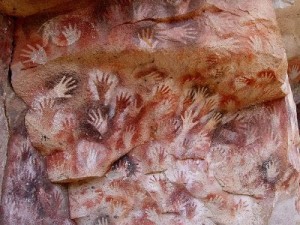 When it comes to art, using the word ‘crisis’ is always a massive overstatement. Between the crises in painting, criticism, and photography you’d think that art was in some real trouble. But as it turns out, much like the recent debt ceiling crisis, these cultural predicaments are just as manufactured. It’s been argued that there are no great art world debates these days, Robert Storr and Okwui Enwezor’s 2008 quarrel in the ‘Letters’ section of Artforum seems to have been, sadly, our watershed moment. Perhaps its just a symptom of Pluralism, which reliably sops up argument and the ability to take a position faster than a roll of Bounty paper towels. There’s also the chance that our desperate intellects, starved for substantive debate, have begun conjuring romantic phantoms out of art history’s facts and figures, while melodramatically slapping the word ‘crisis’ on anything that emits a whiff of potential dispute. After all, who isn’t longing for a bull-headed Michael Fried in contemporary clothes to butt heads with?
When it comes to art, using the word ‘crisis’ is always a massive overstatement. Between the crises in painting, criticism, and photography you’d think that art was in some real trouble. But as it turns out, much like the recent debt ceiling crisis, these cultural predicaments are just as manufactured. It’s been argued that there are no great art world debates these days, Robert Storr and Okwui Enwezor’s 2008 quarrel in the ‘Letters’ section of Artforum seems to have been, sadly, our watershed moment. Perhaps its just a symptom of Pluralism, which reliably sops up argument and the ability to take a position faster than a roll of Bounty paper towels. There’s also the chance that our desperate intellects, starved for substantive debate, have begun conjuring romantic phantoms out of art history’s facts and figures, while melodramatically slapping the word ‘crisis’ on anything that emits a whiff of potential dispute. After all, who isn’t longing for a bull-headed Michael Fried in contemporary clothes to butt heads with?
Argument, debate, and change do not constitute a crisis. I’m going to pick on art criticism here, because, well, its easy and has been the most in ‘crisis’ lately. At stake is how art is written about and the outlets in which its done. Traditional criticism was the arbiter of taste. It passed judgement in order to elucidate for the public the subject in questions merit. Somewhere along the way art criticism and people took different exits, and here we are with a ‘crisis.’ This is not a doomsday scenario. It’s merely a moment when the old call and response is no longer working and critics are merely trying to figure out the way forward. Content! Form! Internet! Newspaper! A crisis would imply that arts writing might vanish into the dustbin altogether, and that’s clearly not going to happen anytime soon. Sure there’s a glut of opinion masquerading as criticism, cheerleading has replaced judgement, and description often stands in for the thoughtful, but by no means does this represent art criticism’s death knell.
Sub in painting, photography, you name it, and the facts remain. Things change, and if they didn’t we’d all be spraying red ochre from our mouths to leave the silhouette of our hands in some dank cave, the whole notion of which is contrary to what art, and hell, life, represents. Changes are never neat and tidy. Traditionalists lament, conservatives hinder, progress is littered with fits and starts, until finally, solutions are arrived at, just in time to move on to the next thing. So maybe the grand art world debates have been replaced by snarky antagonism, and Pluralism is an alibi for refusing to think too hard, but the alternative is clearly far worse. The New Yorker was gracious enough to remind me of this Oscar Wilde quotation that is a fitting way to conclude.
‘The public make use of the classics of a country as a means of checking the progress of Art. They degrade the classics into authorities. They use them as bludgeons for preventing the free expression of beauty in new forms. They are always asking a writer why he does not write like somebody else, or a painter why he does not paint like somebody else, quite oblivious of the fact that if either of them did anything of the kind he would cease to be an artist. A fresh mode of beauty is absolutely distasteful to them, and whenever it appears they get so angry and bewildered that they always use two stupid expressions–one is that the work of art is grossly unintelligible; the other, that the work of art is grossly immoral. What they mean by these words seems to me to be this. When they say a work is grossly unintelligible, they mean the artist has said or made a beautiful thing that is new; when they describe a work as grossly immoral, they mean that the artist has said or made a beautiful thing that is true.’
-Oscar Wilde, ‘The Soul Of Man,’ 1891



2 comments
Nicely done. Plurality definitely seems to promote tolerance of all things.
Great use of the Wilde quote. Thanks for the food for thought.